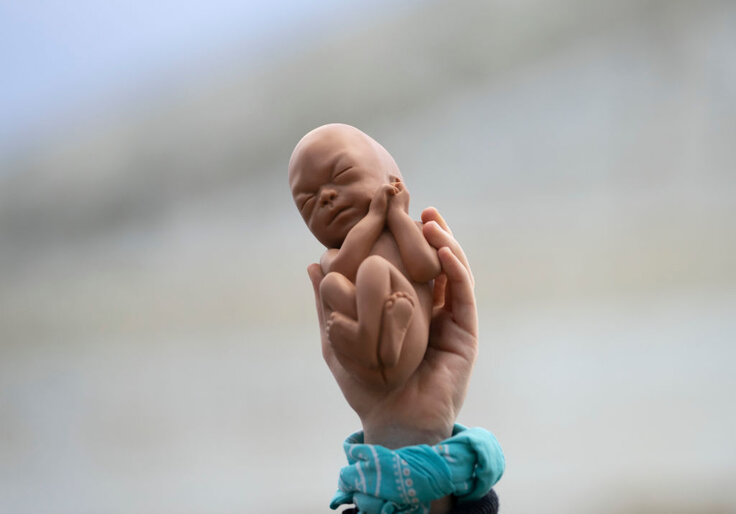A pair of liberal Supreme Court justices say the Court should uphold Roe v. Wade because its central medical claim is sound. Experts on both sides of the abortion debate say those justices are wrong.
Justices Elena Kagan and Sonia Sotomayor on Wednesday defended Roe during oral arguments in a case that could overturn the 1973 ruling. The pair affirmed Roe's central claim that women have the right to an abortion up until the fetus is able to survive outside the womb. Kagan said that "not much has changed" since Roe was decided, when experts believed fetuses were not viable until roughly 24 weeks into term. But scientific advancements have shifted the "fetal viability" window to as early as 20 weeks, which pro-life advocates say undercuts Roe.
The question of fetal viability is central to Wednesday's case, Dobbs v. Jackson Women's Health Organization. The case hinges on Mississippi's 15-week abortion ban, which pro-abortion advocates are pushing to overturn. The state responded to the challenge by petitioning the Court to overturn Roe entirely. The Court, which has a strong conservative majority, appears likely to uphold the law, but it remains unclear if the justices will go as far as overturning Roe, which would allow states to set their own abortion laws.
Even if the Court votes to uphold Roe, it could set a lower threshold for when women can get abortions. What limit the justices set could turn on the question of fetal pain.
Experts long believed fetuses could not feel pain until the point of viability. But more recent findings on fetal brain development have cast doubt on this theory. Sotomayor dismissed this research as coming from "a small fringe of doctors" who believe that "pain could be experienced before a cortex is formed."
Dr. David Prentice, the vice president of the Charlotte Lozier Institute, took issue with Sotomayor's assertion that formation of the cerebral cortex is required for a fetus to feel pain.
"If Justice Sotomayor were to follow her logic to its conclusion, she would have to admit that children, teenagers, and even young adults cannot experience pain because the human cortex doesn't mature until 25 years of age," Prentice told the Free Beacon.
Even pro-abortion experts accept that fetuses can feel pain. Dr. Stuart Derbyshire, a professor at the National University of Singapore, was once hailed as "a leading voice against the likelihood of fetal pain." Derbyshire repudiated his position in a 2020 analysis that found fetuses may feel pain as early as 12 weeks.
Derbyshire, who is unapologetically pro-choice, said those who want to uphold Roe should disregard the science of fetal development and focus on arguments of bodily autonomy.
"The discussion about viability is insane," Derbyshire told the Washington Free Beacon. "The entire point of abortion is to stop viability."
Abortion activists and medical groups still cite Derbyshire's recanted claims that fetuses can't feel pain. The plaintiff in Dobbs cited Derbyshire's coauthored 2010 review in its brief to the Court.
But according to Derbyshire, pro-choice advocates should acknowledge that abortion impacts two humans and pick a side.
"They don't have the balls to say 'so what'—that's the only response that's reasonable," Derbyshire told the Free Beacon. "If you're defending abortion and you're trying to say the fetus is like a rock or a tree, then you are in trouble. It is alive."
